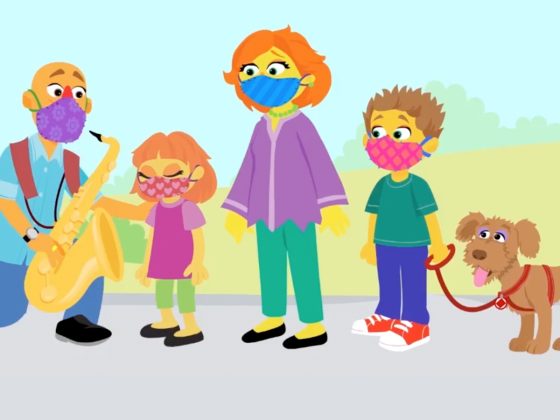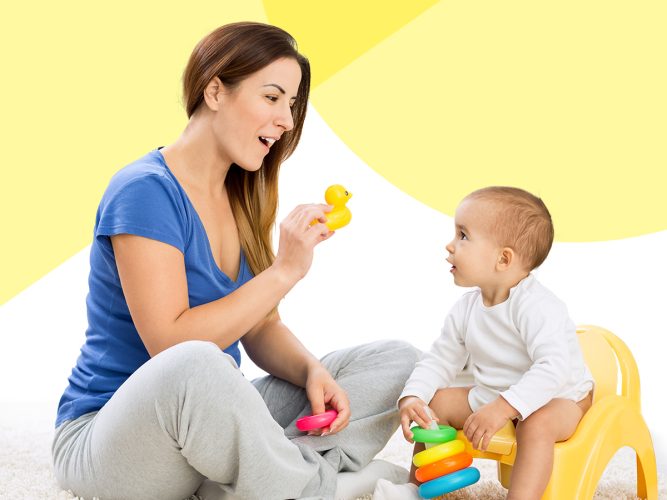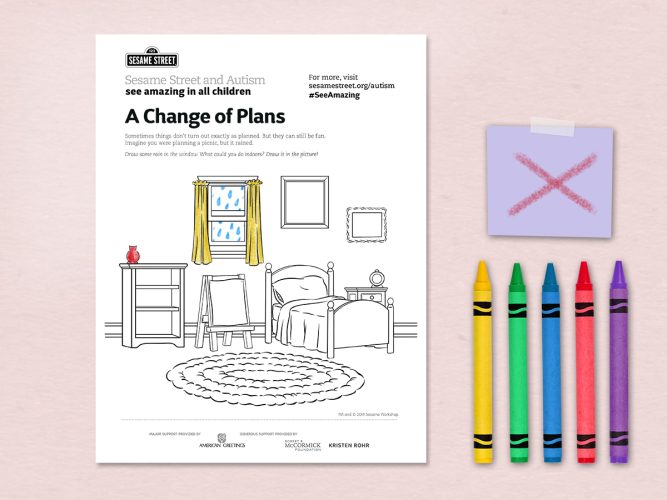
A Trip to the Park
Julia and her mom try to go to the park.
When things don’t go as planned, when plans change, or when long-term plans simply can’t be made—all things associated with going back to school—we might feel frustrated, disappointed, confused, or even sad. It’s okay to feel any of those big feelings!
Because of the lingering uncertainty, we’re all going to need to practice some flexibility this year. Flexible thinking helps us adapt to new or unexpected situations. It helps us solve problems, get along with others, and think about things in new ways.
Fortunately, there are lots of playful ways to build flexible thinking skills.
In this video, we see Julia and her family try to go to the park but find that it’s too crowded. Together they practice flexibility when they think of other ways they can have fun together on their walk home. Watch the video together with children.
- Before watching: Talk about the word flexibility. Ask: What does it mean to be flexible? Can you think of things that are flexible? Did you know that our brains can be flexible, too?
- While you watch: Notice what Julia’s parents say and do to help children through feelings of disappointment. Point out the ways they work together to think of a solution.
- After watching: Ask children what happened in the video. Talk about times when you’ve needed to be flexible too. What problem did we face? What did we do?
Now, think of things that are different or uncertain about going back to school this year. How has your family already adapted? What else can you do to stay nimble this year?
Read the article We are Flexible for more tips to help your family practice and build flexible thinking skills.


